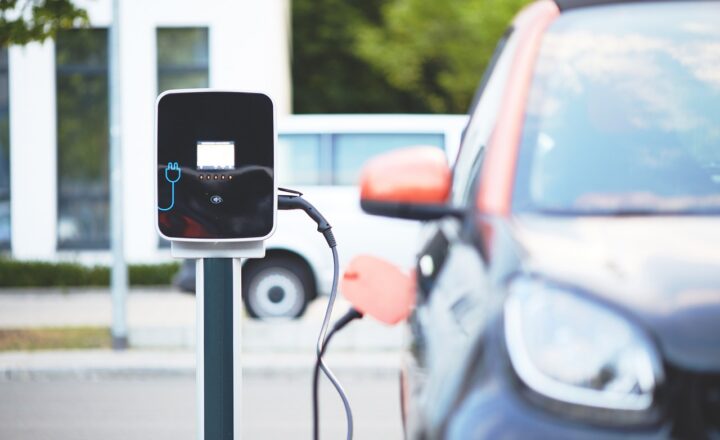
In a rapidly growing world where the demands on our transportation systems continue to evolve, innovative technologies are leading to breakthroughs that promise to reshape how we travel. From electric vehicles to smart transportation systems, the innovations in this field are not just exciting, but they are also critical for our future. In this article, we will explore some of the most groundbreaking advancements in transportation today, analyzing their potential impacts and benefits.
1. Electric and Autonomous Vehicles
The transition from internal combustion engines to electric vehicles (EVs) is one of the most significant shifts in transportation in recent years. Major automotive manufacturers are investing heavily in EV technology, driven by advancements in battery life, charging infrastructure, and increased consumer interest due to environmental concerns.
Electric vehicles are known for their lower emissions and reduced reliance on fossil fuels. However, the advent of autonomous vehicles (AVs) promises to further transform the landscape. Companies like Tesla, Waymo, and traditional automakers are developing self-driving technologies that could radically change how we think about personal and public transportation.
**Key Advantages of Electric and Autonomous Vehicles:**
- Reduced Carbon Footprint: By eliminating tailpipe emissions, EVs contribute to cleaner air and lower greenhouse gas emissions.
- Enhanced Safety: Autonomous driving technologies aim to reduce accidents by leveraging advanced sensors and machine learning algorithms to predict and respond to potential hazards.
- Increased Efficiency: Autonomous vehicles can optimize route planning and traffic flow, which could lead to less congested roads and shortened travel times.
With the combination of electric and autonomous technologies, the future of personal and public transport is poised for transformation.
2. Hyperloop Technology
Hyperloop technology is heralded as a revolutionary leap for high-speed transportation. Conceptualized by Elon Musk, this system would transport passengers in pods at speeds exceeding 700 miles per hour in low-pressure tubes. Various companies, including Virgin Hyperloop and Hyperloop Transportation Technologies, are actively developing this concept.
**Benefits of Hyperloop Technology:**
- Speed and Efficiency: Hyperloop systems could significantly reduce travel times between major cities, making long-distance commutes feasible within minutes rather than hours.
- Environmental Impact: The potential for solar power to provide energy to the system can drastically reduce its carbon footprint compared to traditional air or travel systems.
- Reduced Traffic Congestion: By offering an alternative mode of transporting large volumes of people quickly, hyperloop technology could mitigate congestion in urban areas.
This ambitious project holds the key to a new era where time, distance, and urban transportation are no longer hindered by existing infrastructures.
3. Flying Cars and Urban Air Mobility
The concept of flying cars has long been relegated to the realm of science fiction; however, advances in drone technology and electric vertical takeoff and landing (eVTOL) aircraft are turning this dream into a burgeoning reality. Companies like Joby Aviation and Volocopter are spearheading innovation in urban air mobility (UAM) solutions, which offer potentially transformative urban transportation options.
**Advantages of Urban Air Mobility:**
- Reduced Ground Traffic: By utilizing the vertical space above cities, flying cars could alleviate traffic congestion on the ground below.
- Faster Commutes: Air travel could dramatically decrease travel times, making it possible to bypass traffic entirely.
- Innovative Delivery Systems: UAM technology can also be applied to logistics, enabling rapid drone deliveries of goods and services in urban settings.
Flying cars present regulatory challenges and safety concerns, but as technology develops, these obstacles may be overcome, transforming urban landscapes.
4. Smart Transportation Systems
Smart transportation systems utilize data and technology to optimize traffic management, enhance mobility services, and improve the overall transportation experience. By incorporating internet of things (IoT) devices, cities can monitor real-time traffic conditions, enabling dynamic and responsive traffic flows.
**Features of Smart Transportation Systems:**
- Traffic Signal Management: Real-time data allows for adaptive signal control, optimizing traffic light timing based on current traffic conditions.
- Mobile Applications: Users can access real-time updates on public transport schedules, traffic conditions, and potential disruptions from their smartphones, improving planning and reducing wait times.
- Integrated Transport Solutions: Smart systems enable various transport modes (walking, cycling, public transport, ridesharing) to work cohesively, giving users more choices for commuting efficiently.
These systems integrate modern technology with traditional transportation to create more connected, efficient cities.
5. Sustainable Transportation Innovations
As climate change concerns rise, the push for sustainable transportation solutions is more crucial than ever. From cargo bicycles to electric public transport buses, sustainable modes of transport are emerging to address environmental challenges.
**Notable Innovations in Sustainable Transportation:**
- Bicycles and E-Bikes: The revival of cycling as a reliable mode of transport, assisted by electric bicycles that facilitate longer distances and hilly terrains without excessive effort.
- Green Public Transit: Electric buses are being integrated into urban transit systems, offering cleaner alternatives that help reduce air pollution.
- Car-Sharing Services: Innovations like ride-sharing platforms enable more efficient use of vehicles, reducing the need for personal car ownership and thus lowering overall emissions.
As cities strive for greener alternatives, these sustainable innovations are crucial in efforts to mitigate environmental impacts related to transportation.
Conclusion
The innovations in transportation are expansive and transformative, possessing the potential to redefine how we move within our cities and across distances. As electric and autonomous vehicles become more prevalent, hyperloop technology redefines travel expectations, urban air mobility emerges on the horizon, and smart transportation systems evolve, the future of transportation is shaping up to be not only more efficient but also more sustainable.
Embracing these advancements is crucial not only for enhancing mobility but also for addressing the climate crisis, making transportation more equitable and less harmful to our planet. In the years to come, we can expect to see a harmonious integration of these innovative modes, creating a more efficient, sustainable, and interconnected world of transportation.




